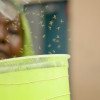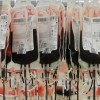Long covid & the immune system: what's going wrong?
Interview with
Inflammation is a really strong hint that the patient’s own immune system is a major player in this 'long covid'. Chris Smith asked University of Cambridge immunologist Clare Bryant what might be going wrong...
Clare - That's a great question, Chris, and somewhat complicated by the fact that we're really just beginning to understand what's happening with the immune response per se. But basically, inflammation is the way in which the body tries to control infections, and therefore the production of inflammation should be a protective response against the virus. But what seems to be happening with this infection is that the body is mounting an excessive response. And then the longer tail, presumably what you're getting is some long term inflammatory response, that somehow is not switching off in the way you would normally expect it to after an infection.
Chris - So we're getting effects which are short term - the virus goes in, it does some damage, you get inflammation because it's there; that's successful and gets rid of the virus - but it's almost like the vestiges of that inflammatory response just remain grumbling on indefinitely and damage other tissues?
Clare - That seems to be what's happening. And that's really quite concerning because one of the things we know is that the virus is able to attack epithelial cells; that's cells lining the lung, the gut, and the blood vessels. There's quite a lot of evidence suggesting that infected cells of the lining vessels are communicating with immune cells. And this then is causing and triggering inflammation, and this can actually cause reprogramming of different immune cells. And presumably there's a reprogramming going on, which is then leading to the unbalanced immune response that we're seeing.
Chris - Why is it so pronounced in some people, and other people don't even know they were even infected?
Clare - I don't think we really know that at all. It's really not clear at all why some people get nothing and other people get this kind of long tail effect.
Chris - Do you think it's the virus or do you think it's the individual?
Clare - I guess it's more likely to be an individual response in that the virus is going to have pretty similar effects wherever it goes. It just depends how you, as an individual, respond to that virus, and potentially a host of genetic factors that we just don't know about.
Chris - In Cambridge, the Department of Medicine at Addenbrooke's Hospital have been running a very important study, where they've been collecting samples from extremely large numbers of patients who have coronavirus, of a range of different severities. And they're following through those patients and looking actually at the aftermath, as well as when they're acutely unwell. I wrote to Professor Ken Smith today - he's on holiday so he was unable to join us on the program - but I asked him, could you tell us a bit about the findings? And he said that one new observation they've made is that about 28 to 50 days after people first get symptoms with coronavirus, people with even moderate disease who have recovered and gone home have changes to the levels of white blood cells in their blood. And those changes don't seem to be resolving. They've got some cells which are higher, many cells which are much lower. And he said to me that this raises the possibility that there could be some kind of ongoing immune abnormality after COVID-19 that's driving some of the symptoms, including some of the long term symptoms we're seeing. And the fact that some of the cell levels are very low, he said to me, "is there a possibility of a post-COVID immune deficiency syndrome?" And actually it wouldn't be so unusual for that to happen, would it? Because in the last year we've seen a paper published where when people catch measles virus, measles goes through and wipes the immune slate clean. People lose all of their immune memory, and they're immune to measles, but then they're not immune to anything else.
Clare - Yeah. I mean, I think that's extremely interesting. And if this is true in COVID as well, and this data would support that as a possibility - a sort of immune amnesia - then that's extremely interesting and really speaks to us as thinking really carefully. Do you take a post-COVID patient... if they've also had their immune slate wiped clean, then we need to think about boosting them for vaccines against other infectious diseases to protect them against secondary infections, tertiary infections.
Chris - That to one side for a second, why do you think that people are presenting with the symptoms that they are? Helen and Paul, who we heard from earlier in the program, both described this profound fatigue; and fatigue that you don't know is there, until you try and do something and then it kicks in. Why would the immune system produce symptoms like that?
Clare - If you have generalised inflammation - inflammation in your heart, or you've got inflammation in your lungs - you probably will feel fatigue, because what happens is the function of those tissues is compromised. You get a less efficient cardiac function; you're getting less oxygen delivery to your brain and your muscles; so therefore you will be tired. If you're getting less efficient respiratory system function because you've got lung damage or lung inflammation, then you'll get less oxygen delivery, and that will make you fatigued. Inflammation in nervous cells and cells of the brain will lead to you potentially feeling fatigued. So there's a whole host of factors here whereby if you've got unregulated inflammation, which is no longer fighting the infection, it will make you feel bad. Inflammation makes you feel bad.










Comments
Add a comment